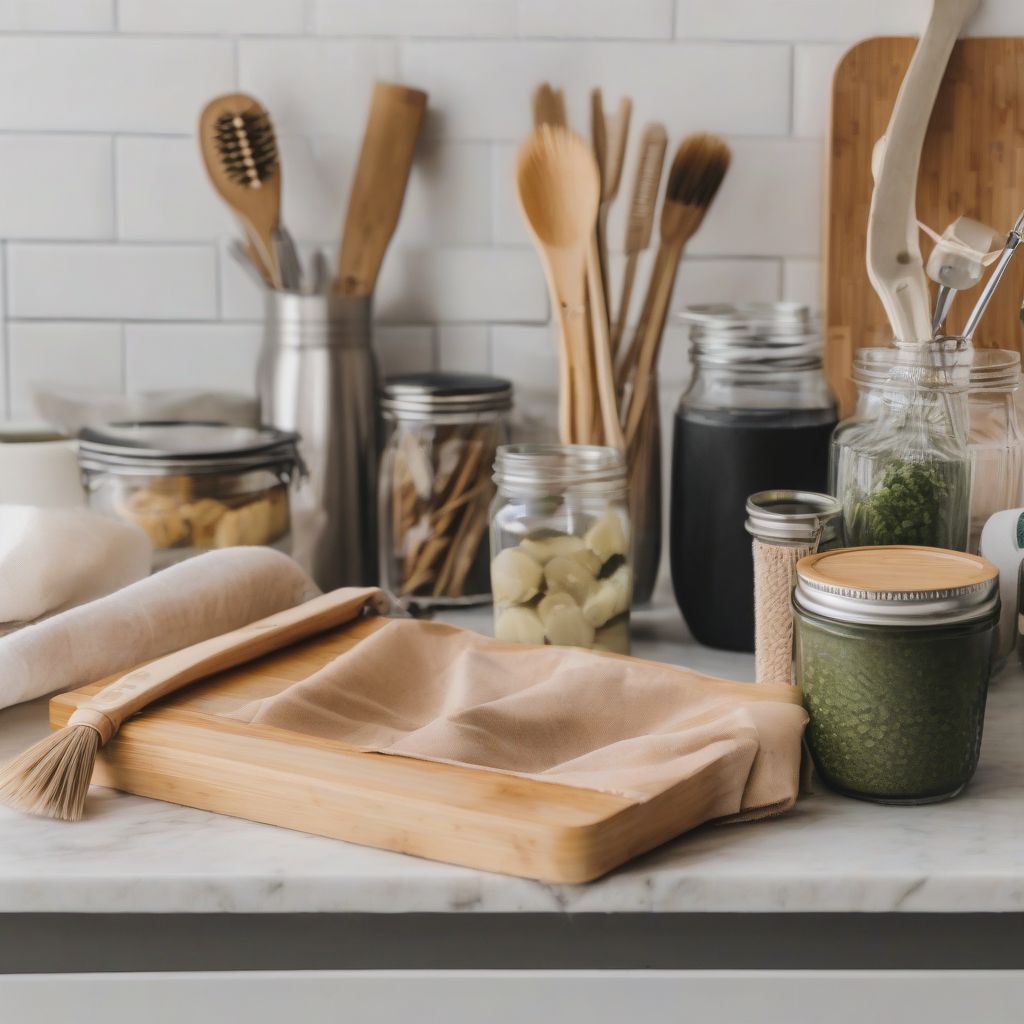Have you ever stopped to think about where your trash goes after you throw it away? It’s out of sight, out of mind, right? In reality, our garbage often ends up in landfills, contributing to environmental issues. The good news is that even in the heart of the city, we can significantly reduce our environmental impact starting right in our kitchens. Let’s explore how to create a zero-waste kitchen in your urban home, turning your kitchen into a force for good!
Rethinking Your Shopping Habits for a Zero-Waste Kitchen
The journey towards a zero-waste kitchen begins before you even step foot in your kitchen. It all starts at the grocery store. By making mindful choices about what and how you buy, you’ll be well on your way to minimizing waste.
Embrace the Bulk Bins
One of the simplest yet most effective strategies is to buy in bulk. Instead of picking up pre-packaged goods, bring your own reusable containers and fill them up from the bulk bins. This allows you to control the quantity you purchase, reducing the chances of food waste and eliminating unnecessary packaging.
Choose Unpackaged Produce
Remember those colorful, fresh fruits and vegetables? Opt for the ones without plastic wrapping or Styrofoam trays whenever possible. Not only does this reduce waste, but it can also save you money in the long run.
Prioritize Reusable Alternatives
Single-use plastics are a major culprit in overflowing landfills. Say goodbye to plastic bags and embrace reusable options like cloth bags for groceries and mesh bags for produce.
Plan Your Meals, Reduce Food Waste
Meal planning is your secret weapon against food waste. By planning your meals in advance, you’ll only buy what you need, minimizing the likelihood of food ending up in the trash.
Transforming Your Kitchen into a Zero-Waste Haven
With your shopping habits transformed, let’s focus on turning your kitchen itself into a zero-waste powerhouse. Here’s how:
Composting: Turning Waste into Resources
Composting is like magic – it transforms your food scraps into nutrient-rich soil for your plants. Even in an urban setting, composting is achievable. Consider starting with a small countertop compost bin or exploring options for community composting.
Ditch the Paper Towels, Embrace Reusables
Paper towels might seem convenient, but they create a significant amount of waste. Switch to reusable alternatives like cloth napkins, dish towels, and washable sponges.
Embrace Reusable Food Storage
Invest in a set of high-quality, reusable food storage containers to replace plastic wrap and single-use plastic bags. Glass containers are a fantastic option as they’re microwave-safe, dishwasher-safe, and don’t retain odors.
Water Wisely: Conserve and Reuse
Conserving water is a crucial aspect of a sustainable lifestyle. Wash fruits and vegetables in a bowl of water instead of under a running tap. You can even use the leftover water to water your plants – talk about a win-win!
 Zero Waste Kitchen Essentials
Zero Waste Kitchen Essentials
Making Sustainable Choices a Habit
Creating a zero-waste kitchen isn’t about achieving perfection overnight – it’s about making conscious choices every day. Embrace the journey and celebrate your progress along the way.
The Power of DIY Cleaning Supplies
Did you know that you can make your own cleaning supplies using simple, natural ingredients? Baking soda, vinegar, and lemon juice are incredibly effective and eliminate the need for harsh chemicals and plastic packaging.
Repair, Don’t Replace
Before you toss away a broken kitchen appliance, consider whether it can be repaired. Repairing not only reduces waste but can also save you money in the long run.
Support Businesses That Align with Your Values
When you do need to make purchases, choose to support businesses that prioritize sustainability and ethical practices. Look for companies that offer minimal packaging, use recycled materials, and are committed to reducing their environmental impact.
Conclusion
Creating a zero-waste kitchen in your urban home might seem like a lofty goal, but it’s entirely achievable with mindful choices and small changes. By rethinking your shopping habits, embracing reusable alternatives, and adopting eco-friendly practices, you can transform your kitchen into a space that aligns with your values and contributes to a healthier planet. Remember, every step you take towards a zero-waste lifestyle makes a difference.
Let’s start a conversation! Share your zero-waste kitchen tips and tricks in the comments below. Together, we can create a more sustainable future, one kitchen at a time.
[amazon bestseller=”zero waste kitchen”]
